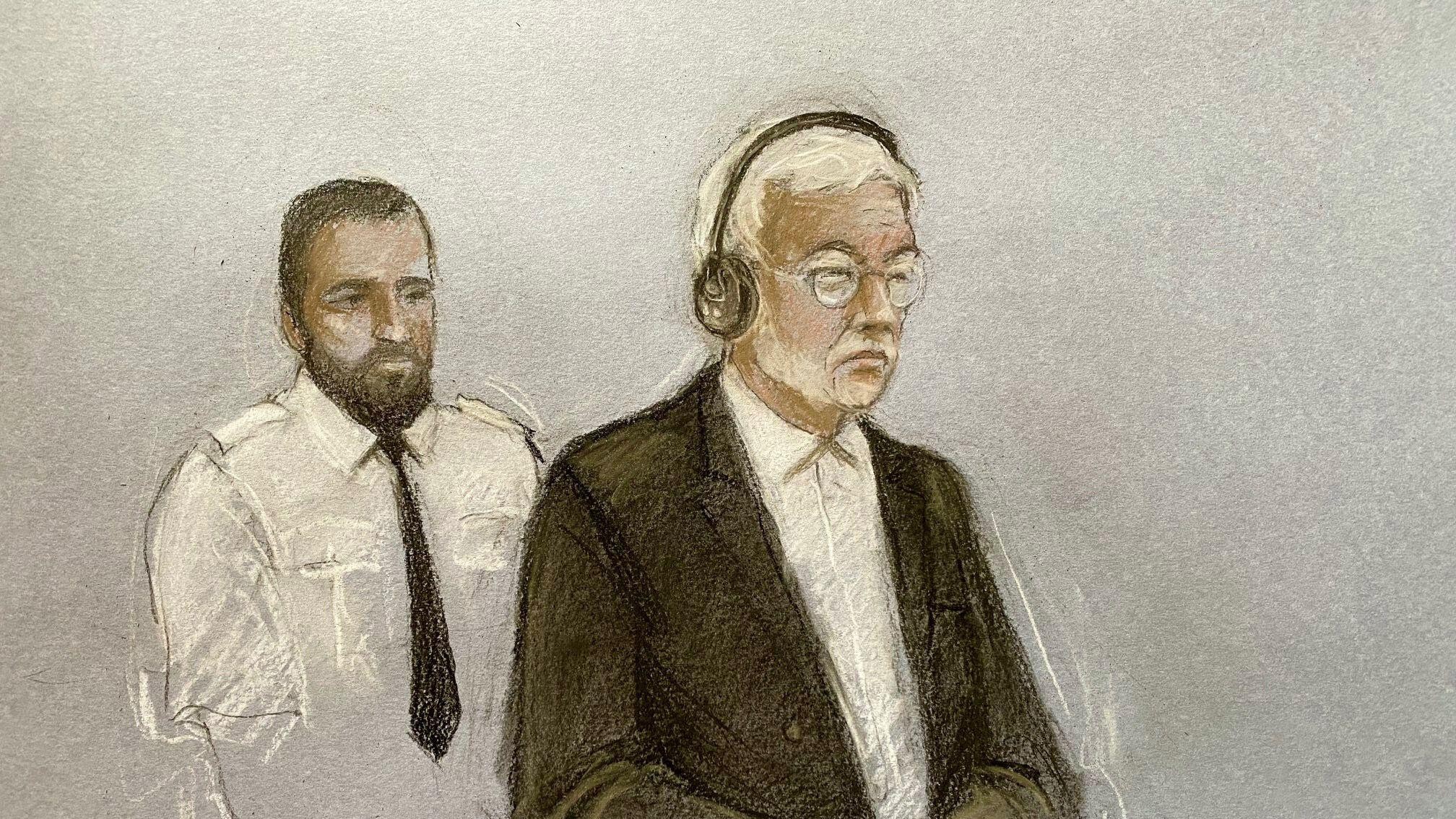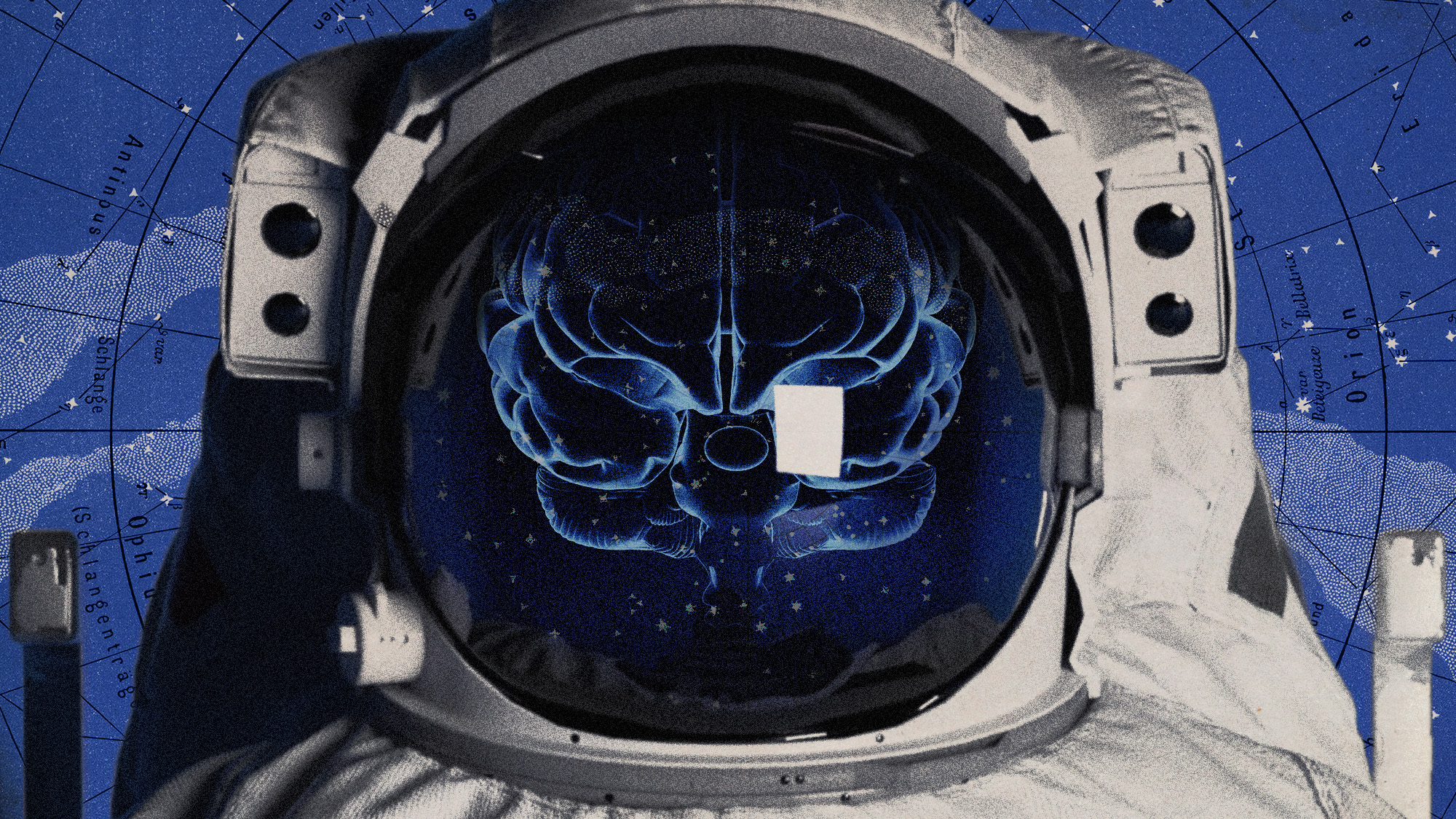Hongchi Xiao: slapping therapy 'master' convicted of manslaughter
Alternative therapy has amassed 'cult-like following' worldwide, but 'self-healing' practice led to deaths of two diabetics

A free daily email with the biggest news stories of the day – and the best features from TheWeek.com
You are now subscribed
Your newsletter sign-up was successful
Few stories ever told at Winchester's "imposing" crown court can have been "quite as strange as the twisty tale of Hongchi Xiao, a Chinese-born banker turned 'master' of alternative medicine".
The self-proclaimed practitioner of paida lajin (so-called slapping therapy), was found guilty on Friday of manslaughter after a diabetic woman stopped taking her insulin during his workshop in 2016, The Guardian reported.
Danielle Carr-Gomm, 71, had a fear of needles and "sought alternatives to her insulin", said Sky News. The grandmother from Lewes in East Sussex attended Xiao's week-long retreat in Wiltshire, where he promoted slapping therapy as a "cure" for diabetes. But Carr-Gomm became seriously ill and died of diabetic ketoacidosis on the fourth day.
The Week
Escape your echo chamber. Get the facts behind the news, plus analysis from multiple perspectives.

Sign up for The Week's Free Newsletters
From our morning news briefing to a weekly Good News Newsletter, get the best of The Week delivered directly to your inbox.
From our morning news briefing to a weekly Good News Newsletter, get the best of The Week delivered directly to your inbox.
Xiao, a US national, denied the charge and said he would "never" tell someone to stop taking their insulin. But the 61-year-old was found guilty of gross negligence manslaughter – a rare conviction – because he knew Carr-Gomm's decision to stop taking insulin could be fatal, said Rosemary Ainslie, head of the Crown Prosecution Service special crime division. He had "seen it before".
What was the previous conviction?
A core element of the prosecutors' case against Xiao was the death of a six-year-old diabetic boy in Australia, a year before Carr-Gomm died.
The child's parents had stopped giving him insulin after attending one of Xiao's workshops in Sydney in April 2015. The boy became ill and started "vomiting black liquid". Xiao told the parents that this was "just part of self-healing body adjustment", jurors heard, but the boy was dying.
After he was arrested over the death of Carr-Gomm, Xiao was flown to Australia to face the charge of manslaughter of the six-year-old, and convicted in 2019. He was then brought back to the UK to face trial over the death of Carr-Gomm.
A free daily email with the biggest news stories of the day – and the best features from TheWeek.com
What is slapping therapy?
Paida lajin ("slapping and stretching") is a method of "self-healing" in which people repeatedly slap themselves and others, which it is claimed can expel toxins from the blood and organs. They then stretch their limbs and joints to allegedly boost the flow of "energy".
Paida lajin "has roots in traditional Chinese medicine", said The Independent, but "critics say it has no scientific basis". Doctors say it causes bruises and broken blood vessels. A video of one of Xiao's workshops in Malaysia shows people "forcefully slapping different parts of their body" until the skin "turns red or begins to look bruised".
Slapping therapy has "amassed a cult like following around the world", said the Daily Mail. One of Xiao's websites claims there are "millions of practitioners" in Asia, Europe, India, South Africa and Australia. They believe paida lajin can encourage the body to rid itself of diseases like diabetes, Alzheimer's, arthritis and cancer.
"We were all born with self-healing power but we simply ignore it and spend millions of dollars paying for medications," Xiao told one seminar.
Who is Hongchi Xiao?
"His disciples see him as a guru, a revolutionary; his critics believe he is a dangerous fraud," said The Guardian.
Xiao was born in China, the son of a "western medical doctor". He studied finance before working as a Wall Street banker, but gave it up in the 2000s because he "wanted to do something else more meaningful", jurors heard. He embarked on a "quest" to learn from ancient Chinese medicine masters.
He claims to have travelled widely in China, learning natural healing "from fishermen to kung fu masters", said Sky News. Xiao said he stayed in a monastery in Tibet, where he treated 100 people a day, before discovering slapping therapy – which he called a "precious gift" bestowed by God.
Xiao has since led workshops around the world and written a book on the technique. Despite having no medical training, he has "repeatedly" promoted slapping therapy in interviews and online, said The Independent.
Xiao began to offer residential workshops, one of which Carr-Gomm joined in Bulgaria in July 2016. She fell seriously ill after she stopped taking her insulin, but in that instance, Xiao "successfully persuaded her to restart insulin", said the BBC.
On Xiao's website, Carr-Gomm wrote that she had suffered a "healing crisis" – but described the "absolutely astonishing" improvements to her health. "You're definitely a messenger sent by God because you're starting a revolution to put the power back in the hands of the people to cure themselves and change the whole system of health care," she said in a video testimonial, describing Xiao as "master".
"My hope is that a second or third group workshop would heal me completely."
Harriet Marsden is a senior staff writer and podcast panellist for The Week, covering world news and writing the weekly Global Digest newsletter. Before joining the site in 2023, she was a freelance journalist for seven years, working for The Guardian, The Times and The Independent among others, and regularly appearing on radio shows. In 2021, she was awarded the “journalist-at-large” fellowship by the Local Trust charity, and spent a year travelling independently to some of England’s most deprived areas to write about community activism. She has a master’s in international journalism from City University, and has also worked in Bolivia, Colombia and Spain.
-
 Switzerland could vote to cap its population
Switzerland could vote to cap its populationUnder the Radar Swiss People’s Party proposes referendum on radical anti-immigration measure to limit residents to 10 million
-
 Political cartoons for February 15
Political cartoons for February 15Cartoons Sunday's political cartoons include political ventriloquism, Europe in the middle, and more
-
 The broken water companies failing England and Wales
The broken water companies failing England and WalesExplainer With rising bills, deteriorating river health and a lack of investment, regulators face an uphill battle to stabilise the industry
-
 ‘Zero trimester’ influencers believe a healthy pregnancy is a choice
‘Zero trimester’ influencers believe a healthy pregnancy is a choiceThe Explainer Is prepping during the preconception period the answer for hopeful couples?
-
 Growing a brain in the lab
Growing a brain in the labFeature It's a tiny version of a developing human cerebral cortex
-
 Europe’s apples are peppered with toxic pesticides
Europe’s apples are peppered with toxic pesticidesUnder the Radar Campaign groups say existing EU regulations don’t account for risk of ‘cocktail effect’
-
 How space travel changes your brain
How space travel changes your brainUnder the Radar Space shifts the position of the brain in the skull, causing orientation problems that could complicate plans to live on the Moon or Mars
-
 Mixed nuts: RFK Jr.’s new nutrition guidelines receive uneven reviews
Mixed nuts: RFK Jr.’s new nutrition guidelines receive uneven reviewsTalking Points The guidelines emphasize red meat and full-fat dairy
-
 Trump HHS slashes advised child vaccinations
Trump HHS slashes advised child vaccinationsSpeed Read In a widely condemned move, the CDC will now recommend that children get vaccinated against 11 communicable diseases, not 17
-
 The truth about vitamin supplements
The truth about vitamin supplementsThe Explainer UK industry worth £559 million but scientific evidence of health benefits is ‘complicated’
-
 Health: Will Kennedy dismantle U.S. immunization policy?
Health: Will Kennedy dismantle U.S. immunization policy?Feature ‘America’s vaccine playbook is being rewritten by people who don’t believe in them’